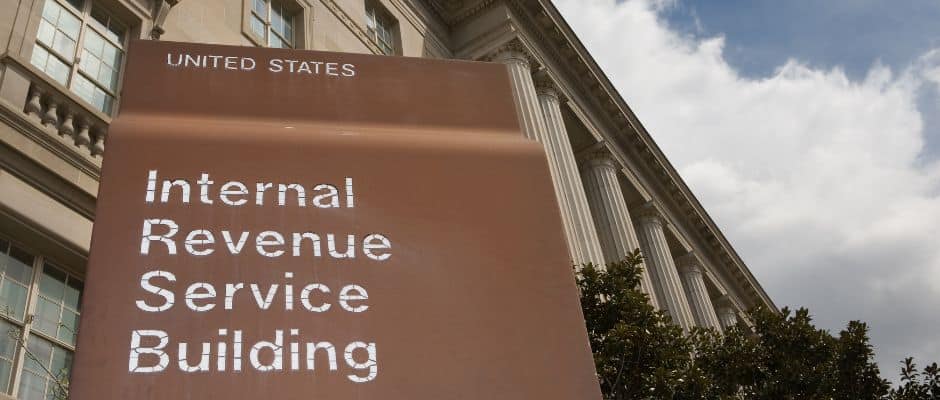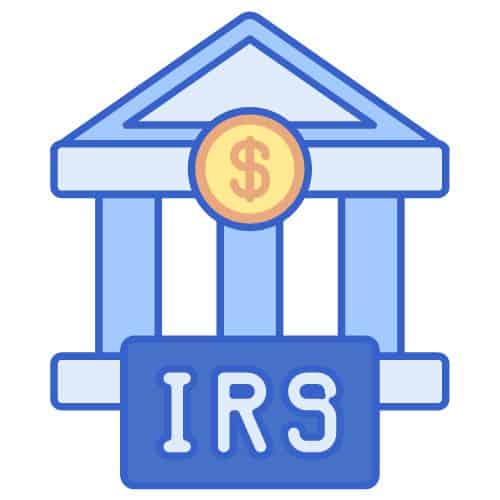
One question I often get asked is if investments automatically get reported to the appropriate tax agency. The answer for most brokerages and investment sites is no: taxes are something the individual investor is responsible for themselves. Acorns is an American financial technology company that focuses on micro-investing and Robo-investing.
So does Acorns report to the IRS?
Like with most other brokerages, Acorns will not automatically report your investments to the IRS. As an investor, you are responsible for reporting your own taxable events and capital gains or losses to the IRS. Unless your gains are made in a non-taxable account like a ROTH IRA, then you will have to report these on your income taxes each year.
Acorns says clearly on its own website that it will not provide reporting to the IRS for any taxable events made by the investor. This is not unusual, especially amongst smaller financial companies that simply do not have the workforce to be able to provide tax advice as well. That means for the more than 8 million Acorns users in the United States, when it comes to tax season, you’re on your own!
Does Acorns Report to the IRS?
As I already said, Acorns has the same practices as most smaller brokerages and fintech companies. Each year, if you take part in a taxable event, it is up to you to report any gains or losses to the IRS. Whether it is through some of their hand-picked, diversified ETFs or those managed by major companies like Blackrock, expect to report your taxable Acorns activity to the government.
What Acorns will do for you is provide each investor with a 1099 form in February every year. What is a 1099 form? Investors will recognize this as the summary of taxable events that take place within each investment account. You will also receive a 1099-R form which tracks any funds you withdraw from your Acorns account throughout the year.
Of course, you also have to qualify for the IRS’ minimum reporting requirements. On Acorns, this means you sold investments for a minimum of $20.00 or received dividends in the amount of at least $10.00 during the year. It’s not a very high bar, and since Acorns is focused on micro-investing you might find that your account will not qualify if you are just starting out on the platform.
Do You Get Taxed for Taking Money Out of Acorns?

Unfortunately, the answer to this is yes. Since Acorns automatically takes your funds and allocates them to your investment accounts, you will likely be taxed on withdrawing those funds from Acorns. You also need to keep in mind that short-term and long-term capital gains taxes could potentially apply to the money you withdraw. This means you will be taxed at a higher capital gains rate if your investments were in Acorns for less than a year.
There are some exceptions to these rules as there usually are. One such exception is if you are withdrawing funds to build or rebuild a new home. This is a standard IRS clause that all brokerages will allow. One other exception is if you suddenly need the funds due to a disability. Of course, if you do meet one of these exceptions, you will need to file the respective documents when it comes time to do your taxes.
Another thing to consider is that if you withdraw funds from an Acorns Later account before the age of 59 ½, you will have to pay normal income tax rates on those withdrawals as well as a 10% early withdrawal fee from Acorns. If you need to withdraw funds from Acorns, be prepared for paying the price.
How Much Taxes Do You Pay on Acorns?

This depends on the taxable events that you are being taxed on. Remember that when it comes to capital gains taxes in the United States, it all depends on how long you have invested. Short-term capital gains tax is paid on gains made on investments held for less than a year, and long-term gains are from investments held for more than a year. Always be aware of when you first made the investment so you know what your capital gains tax rate will be.
Investing in ETFs can be a taxable event too, even if you do not sell any of the investment. Why is this? A lot of ETFs pay out dividends on a quarterly or even monthly basis. If you have a significant chunk of money invested in Acorns, you could be taxed on all of the dividends you earn throughout the year. This applies even if you do not cash them out and simply re-invest them back into your original investment.
The Bottom Line: Does Acorns Report My Investments to the IRS?
Acorns is a micro-investing fintech platform that allows American users to invest small amounts of money with the goal of compounding growth over the long term. But just because Acorns is not a big bank or major brokerage, it does not mean you are off the hook when it comes to reporting your investments to the IRS.
If you think Acorns will do this for you, you’re going to be disappointed. Acorns will provide you with the right tax documentation, but it is still up to you as the investor to report these figures to the IRS. If you don’t, you could get audited and that is something that is not worth going through over what is typically a smaller investment with a platform like Acorns.
Geek, out.






